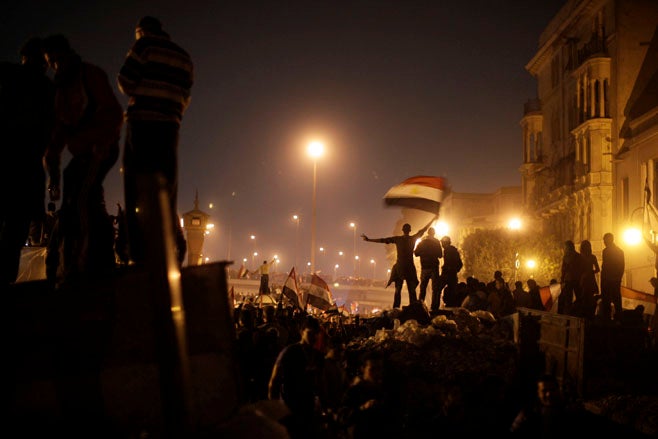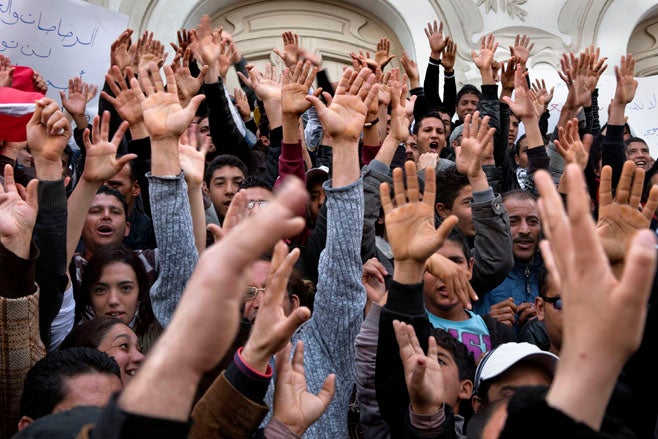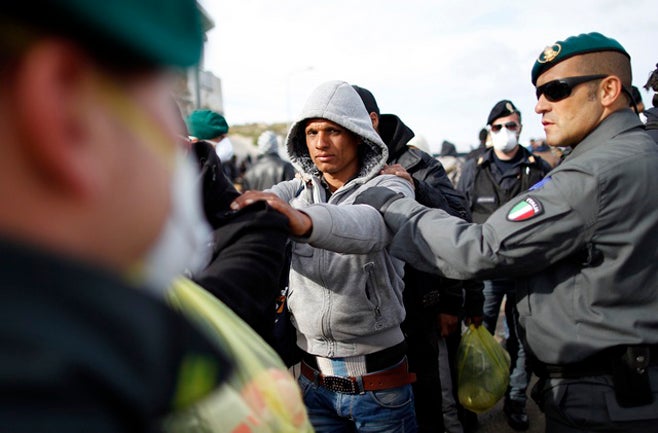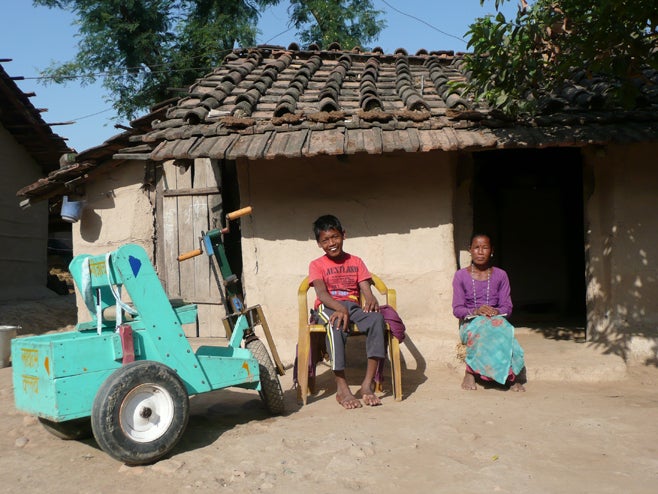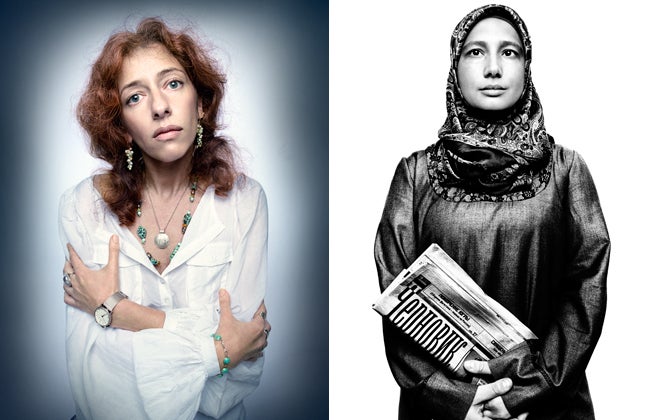In 2011 Iranian authorities refused to allow government critics to engage in peaceful demonstrations. In February, March, April, and September security forces broke up large-scale protests in several major cities. In mid-April security forces reportedly shot and killed dozens of protesters in Iran’s Arab-majority Khuzestan province. There was a sharp increase in the use of the death penalty. The government continued targeting civil society activists, especially lawyers, rights activists, students, and journalists. In July 2011 the government announced it would not cooperate with, or allow access to, the United Nations special rapporteur on Iran, appointed in March 2011 in response to the worsening rights situation.
Freedom of Assembly and Association
In February and March thousands of demonstrators took to the streets of Tehran, the capital, and several other major cities to support pro-democracy protests in neighboring Arab countries and protest the detention of Iranian opposition leaders. The authorities’ violent response led to at least three deaths and hundreds of arrests.
In response to calls by former presidential candidates and opposition leaders Mir Hossein Mousavi and Mehdi Karroubi for mass protests in February, security forces arbitrarily arrested dozens of political opposition members in Tehran and several other cities beginning on February 8. Several days later they placed both Mousavi and Karroubi under house arrest, where they remained at this writing.
In April Iran’s parliament passed several articles of a draft bill which severely limits the independence of civil society organizations, and creates a Supreme Committee Supervising NGO Activities chaired by ministry officials and members of the security forces. Authorities had already banned or severely restricted the independence of several professional organizations not covered by the draft bill, including the Journalists’ Association and the Bar Association. Dozens of activists affiliated with banned opposition political parties or student groups are currently serving time in prison.
Death Penalty
In 2010 Iranian authorities recorded 252 executions, but rights groups believe many more were executed without official acknowledgement. Most of those executed had been convicted of drug-related offenses following flawed trials in revolutionary courts. The number of executions increased even further following the entry into force in late December 2010 of an amended anti-narcotics law, drafted by the Expediency Council and approved by Supreme Leader Ayatollah Ali Khamenei.Since then Iran has executed more than 400 prisoners—including 67 drug offenders in January 2011 alone—according to rights groups. Authorities have refused to acknowledge more than half these executions.
Crimes punishable by death include murder, rape, trafficking and possessing drugs, armed robbery, espionage, sodomy, adultery, and apostasy. On September 3 the semi-official Iranian Students News Agency announced the execution of six men in the southwestern city of Ahvaz. Three of the men were convicted under Iran’s anti-sodomy laws.
Iran leads the world in the execution of juvenile offenders, individuals who committed a crime before turning 18-years-old. The Iranian state executed at least three children in 2011, one of them in public. Iranian law allows capital punishment for persons who have reached puberty, defined as nine-years-old for girls and fifteen for boys. There are currently more than a hundred juvenile offenders on death row.
Authorities have executed at least 30 individuals on the charge of moharebeh (“enmity against God”) since January 2010, allegedly for their ties to armed or terrorist groups. During the early morning hours of January 24, 2011, authorities in Tehran’s Evin prison hanged Jafar Kazemi and Mohammad Ali Haj-Aghai for their alleged ties to the banned Mojahedin-e Khalq (MEK) opposition group. Ali Saremi, who admitted to sympathizing with the MEK’s ideological aspirations, was also hanged in Evin prison on December 28, 2010, for the crime of moharebeh.
As of October 2011 at least 16 Kurds were on death row, many of them for alleged national security crimes and moharebeh.
Freedom of Expression
Authorities continue to shut down newspapers and target journalists and bloggers. On September 5 the Ministry of Islamic Culture and Guidance’s Press Supervisory Board shut down the weekly Shahrvand (Citizen) and daily Ruzegar (Time) for insulting the authorities and “propaganda against the state,” among other crimes. On September 5 and 6, Intelligence Ministry forces raided the offices of Majzooban-e Noor, a website affiliated with the Nematollahi Gonabadi Sufi order, and arrested at least 11 members of its editorial staff on unknown charges.
According to Reporters Without Borders, there were 49 journalists and bloggers in Iran’s prisons as of October 2011. The judiciary sentenced Vahid Asghari, a 24 year-old blogger, to death for his alleged involvement in “running obscene websites,” according to rights groups.
The Ministry of Science, backed by the Supreme Council of the Cultural Revolution, implemented regulations to limit social science course offerings at various universities as part of an Islamicization program. Authorities also issued restrictive quotas to limit the courses and majors that women students could take at certain universities. State universities prevented some politically active students from registering for graduate programs despite test scores that should have guaranteed them access.
The government systematically blocked websites that carry political news and analysis, slowed down internet speeds, and jammed foreign satellite broadcasts.
Human Rights Defenders and Lawyers
Authorities have imprisoned, prosecuted, or harassed dozens of defense lawyers since June 2009. In August 2011 Nobel Peace Laureate Shirin Ebadi said at least 42 lawyers had faced government persecution since June 2009. In January a revolutionary court convicted Nasrin Sotoudeh, a prominent rights lawyer, of “acting against the national security” and “propaganda against the regime” and sentenced her to 11 years in prison. Authorities also barred Sotoudeh from practicing law and from leaving the country for 20 years. In September the judiciary reduced her sentence to six years imprisonment.
In February a revolutionary court sentenced rights lawyer Khalil Bahramian to 18 months in prison and imposed a 10-year ban on his practicing law. In July the judiciary sentenced Mohammad Ali Dadkhah, a prominent lawyer and co-founder (with Ebadi) of the Center for Defenders of Human Rights (CDHR), to nine years in prison and a 10-year ban from teaching and legal practice. On September 10 security forces arrested Abdolfattah Soltani, another CDHR co-founder. On September 27 a revolutionary court in Tehran sentenced Narges Mohammadi, an executive member of the CDHR, to 11 years imprisonment for acting against the national security and membership in an illegal organization.
Also on September 27, security forces raided the home of Masoud Shafiee, the lawyer who represented three American hikers detained in Iran since July 31, 2009, and interrogated him for several hours. On October 2 they prevented him from leaving the country. Authorities had earlier released one of the hikers, Sarah Shourd, on September 14, 2010, and the two others, Shane Bauer and Josh Fattal, on September 21.
Few if any independent rights organizations can openly operate in the country in the current political climate.
Women’s Rights
Iranian women are discriminated against in personal status matters related to marriage, divorce, inheritance, and child custody. A woman requires her male guardian’s approval for marriage regardless of her age. An Iranian woman cannot pass on her nationality to her foreign-born spouse or their children. A woman may not obtain a passport or travel outside the country without her husband’s written permission.
Treatment of Minorities
The government denies freedom of religion to adherents of the Baha’i faith, Iran’s largest non-Muslim religious minority. On May 21, security forces arrested at least 30 Baha’is in a series of coordinated raids in several major cities. At this writing authorities were still holding the defendants without charge. All those arrested were affiliated with the Baha’i Institute for Higher Education, a correspondence university established in 1987 in response to the government’s policy of depriving Baha’i students of the right to pursue higher education. According to the Baha’i International Community, there were 100 Baha’is detained in Iran’s prisons as of October.
Authorities discriminate against Muslim minorities, including Sunnis who account for about 10 percent of the population, in political participation and employment. They also prevent Sunni Iranians from constructing mosques in major cities. In recent years officials have repeatedly prevented Sunnis from conducting separate Eid prayers in Tehran and other cities. On September 5, in Fars province, paramilitary Basij militia attacked members of Iran’s largest Sufi sect, the Nematollahi Gonabadi order, killing one. The authorities then launched a campaign of arrests against members of the group in several cities.
Authorities also targeted converts to Christianity. In September a revolutionary court convicted six members of the evangelical Church of Iran to one year prison terms on charges of “propaganda against the state,” allegedly for proselytizing. On September 25, authorities summoned Yousef Nadarkhani, the pastor of a 400-member Church of Iran congregation in northern Iran, to court and told him he had three opportunities to renounce his faith and embrace Islam. Nadarkhani refused to recant and faced possible execution as of this writing. In 2010 the judiciary had sentenced Nadarkhani to death for “apostasy from Islam” despite the fact that no such crime exists under Iran’s penal code.
The government restricted cultural and political activities among the country’s Azeri, Kurdish, Arab, and Baluch minorities, including organizations that focus on social issues. In April security forces reportedly killed several dozen protesters, most of them ethnic Arabs, in Iran’s southwestern province of Khuzestan. Authorities arrested dozens and executed nine men allegedly connected to protests on May 9. Security forces also arrested hundreds in Iran’s Azerbaijan region following large-scale protests in August and September, part of a pattern of harassment against environmental and Azeri civil society activists.
Key International Actors
In March the UN Human Rights Council appointed a special rapporteur for Iran. In July 2011 the Iranian government announced it would not cooperate with or allow the special rapporteur access. On September 23 the special rapporteur submitted his first report on Iran in which he highlighted a “pattern of systematic violations of … human rights” and repeated his call on the government to allow him to visit the country.
Iran continued to refuse access to UN special procedures, despite their longstanding and repeated requests for invitations to visit. No special rapporteurs have visited the country since 2005.
On September 15 the UN secretary-general submitted a report to the UN General Assembly in which he said he was “deeply troubled by reports of increased numbers of executions, amputations, arbitrary arrest and detention, unfair trials, torture and ill-treatment” and bemoaned “the crackdown on human rights activists, lawyers, journalists and opposition activists.” On November 3 the UN Human Rights Committee issued its concluding observations following its review of Iran’s implementation of the International Covenant on Civil and Political Rights. The committee concluded “that the status of international human rights treaties in domestic law is not specified in the legal system, which hinders the full implementation of the rights contained in the Covenant.”
On April 14 the European Union imposed asset freezes and travel bans on 32 Iranian officials, including members of Iran’s judiciary, who have committed rights abuses. In June the United States extended individuals sanctions against additional members of the Revolutionary Guards, the Basij militia, and Iran’s security forces involved in rights violations. Later that month the US sanctioned companies with ties to the Revolutionary Guards and military.
Iranian and Turkish cross-border military operations against Kurdish rebels in Iraqi Kurdistan, which began in mid-June, killed at least 10, injured dozens, and displaced hundreds of civilians.
